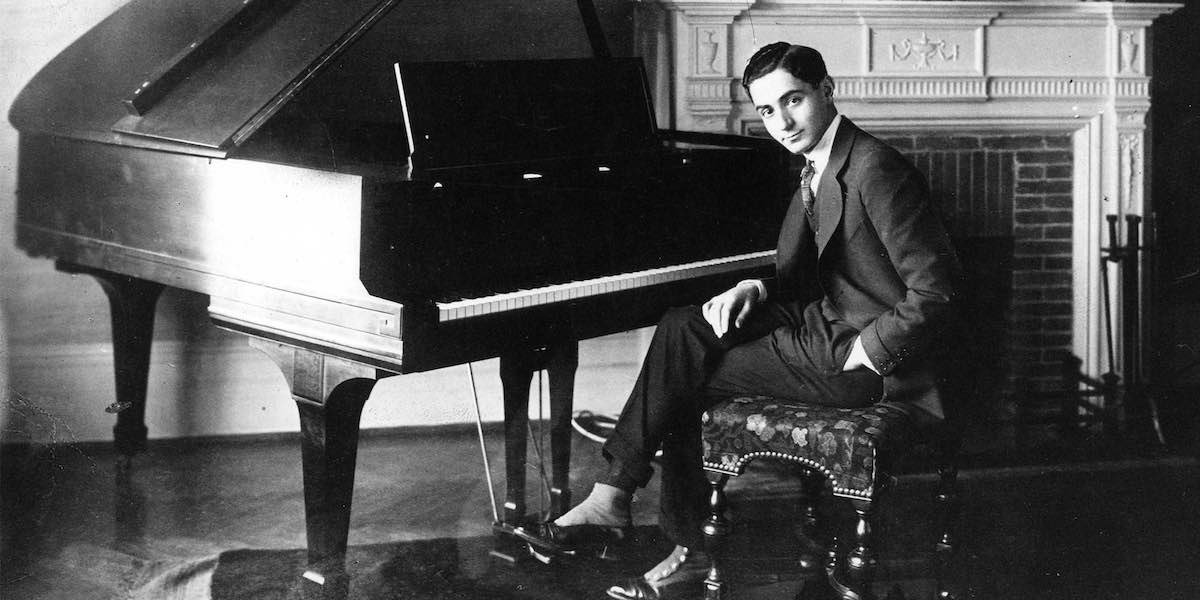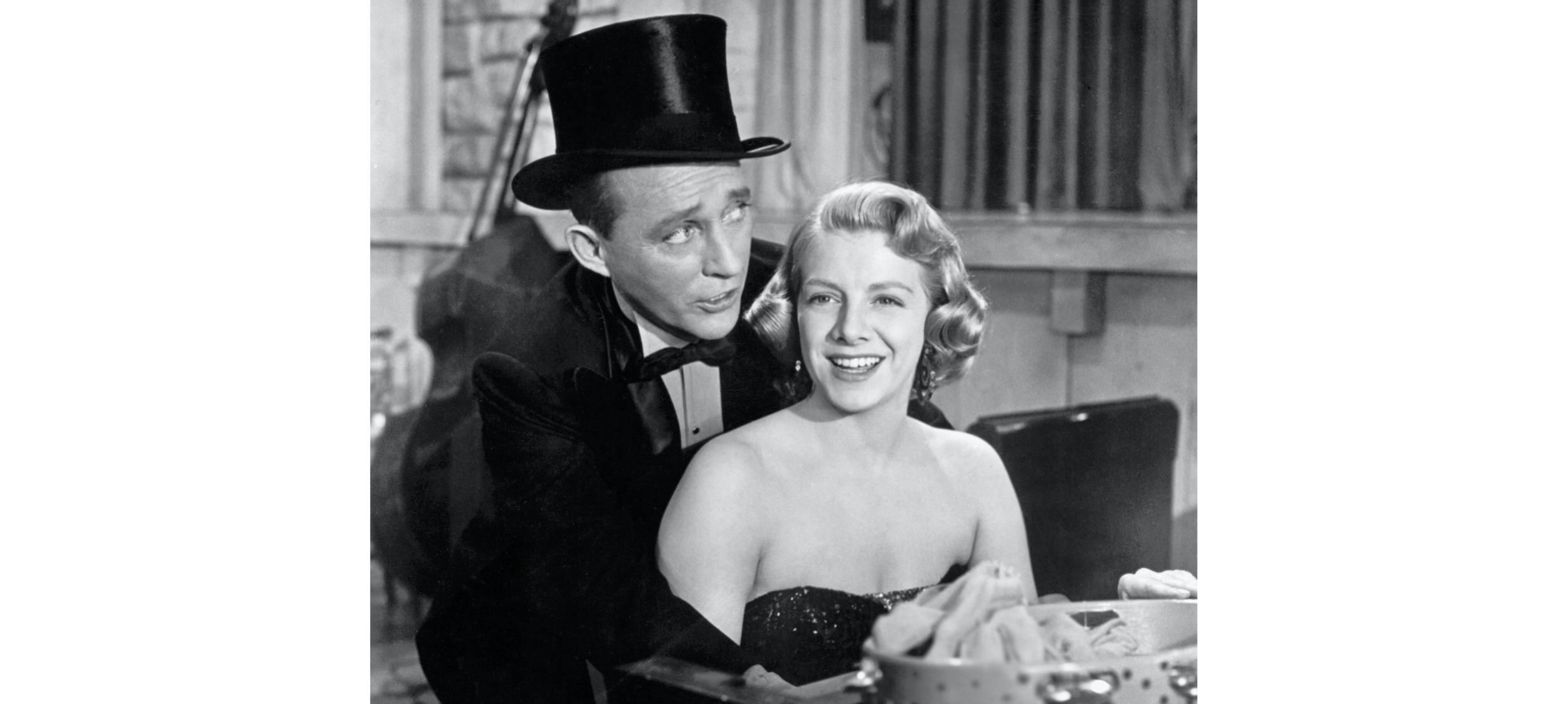
Irving Berlin truly is a man of many seasons, and no matter what time of year it is, it’s always a perfect time for one (or several!) of his tunes. Join us as we mark the seasons with just a few of Berlin’s most beloved classics.
SPRING
“Easter Parade” – As Thousands Cheer (US/UK), Holiday Inn (US/UK)
Fifteen years passed between the original publication of this tune and its rise to fame in both musicals and films. Berlin originally penned the number to cheer up a woman whose beau was fighting overseas in World War I. This version, titled “Smile and Show Your Dimple,” was recorded in 1918 by Sam Ash. Berlin resurrected the melody in 1933 with the now familiar seasonal lyrics as the Act I finale in the Broadway musicals As Thousands Cheer, a sometimes satirical, sometimes poignant take on the news happenings of the time. The song made an appearance again in the films Alexander’s Ragtime Band, Easter Parade and Holiday Inn, the latter of which was adapted for the stage and charmed Broadway audiences in 2016.
On the Avenue, Fifth Avenue,
The photographers will snap us
And you’ll find that you’re in the rotogravure
Oh, I could write a sonnet about your Easter bonnet
And of the girl I’m taking to the Easter Parade
The Easter Parade in New York City began in the mid-1870s as a religious event. By the time the song was written, however, the annual parade was largely secular, and the bonneted masses were only too happy to welcome “Easter Parade” as their anthem for strolling and showing off on a fresh spring morning with the hopes of making news with their finery.
How many chart-topping hits do you know that include the word “rotogravure?”
SUMMER
“Blue Skies” – White Christmas (US/UK), Holiday Inn (US/UK)
Blue skies smiling at me
Nothing but blue skies do I see
Blue days, all of them gone
Nothing but blue skies from now on
Never saw the sun shining so bright
Never saw things going so right
Noticing the days hurrying by
When you’re in love
My how they fly
Who hasn’t woken up on a cloudless Saturday morning in June when the weather is perfect, and everyone is walking around with a spring in their step? A day when literally nothing can go wrong. This jazz number perfectly captures the glee and playfulness of a pristine summer day.
The song was written for the Rodgers & Hart musical Betsy in 1926, as a last-minute edition to appease the vaudevillian star Belle Baker. While the musical only played 39 performances on Broadway, the song was an instant hit – namely with the opening night audience, which demanded no fewer than 24 encores of the song.
In White Christmas, the song serves as the Act I finale – a production number for Bob and the full ensemble. In Holiday Inn, it’s an anthem of freedom from Broadway’s hustle-bustle, as Jim happily transitions from starry Manhattan to sunny Connecticut.
“God Bless America”
A 4th of July fireworks display can’t be considered complete without a full orchestra’s performance of this patriotic standard.
As is the custom with several Irving Berlin titles, this song was written for one piece, but found its audience elsewhere. In this case, it was originally penned as a novelty song in 1918 while Berlin was serving in the army in Camp Upton in Long Island. It wasn’t right for his comic revue Yip Yip Yaphank, but he would not discard it. In 1938, Berlin, along with countless Jewish Americans, watched from afar as Hitler rose to higher power in Europe. It was then that the composer felt it was appropriate to introduce this song of national unity. God Bless America premiered in its current form in 1938 as part of an Armistice Day broadcast.
God bless America
Land that I love
Stand beside her and guide her
Through the night with the light from above
FALL
“Count Your Blessings (Instead of Sheep)” – White Christmas (US/UK)
As soon as the leaves start to turn, and the mornings become colder, it’s natural for us to take stock of ourselves – what we accomplished with the previous year, and what we hope we can still do before the year is out. The idea behind this song was inspired by a conversation the successful composer had with his doctor about his chronic insomnia. “Did you ever try counting your blessings?” the doctor responded. This led to Berlin writing the hymn-like pastoral song for White Christmas. In November and December, finding ourselves around the dinner table over the holidays with loved ones can inspire feelings of both ire and gratitude. Irving Berlin, once again, puts it perfectly:
When I’m worried,
And I can’t sleep,
I count my blessings instead of sheep,
And I fall asleep,
Counting my blessings.
In White Christmas, Bob’s gruff demeanor melts away for a few moments as he sings this song to Susan, who can’t stop worrying about her grandfather.
“Snow” – White Christmas (US/UK)
This tune was originally written under the title “Free” for the political satire Call Me Madam (US/UK), but the song was cut during the show’s out-of-town tryouts. What used to be:
Free – the only thing worth fighting for is to be free.
Free – a different world you’d see if it were left to me.
Became:
Snow! It won’t be long before we’ll all be there with snow!
Snow! Oh! I want to wash my hands, my face and hair with snow!
In the musical White Christmas, Phil, Judy, Betty and Bob fantasize about all the snow that will greet them when they arrive in chilly Vermont. The song is jaunty and playful, full of hopes for snowmen and ski slopes – once again a perfect example of Berlin’s uncanny gift for lyrical imagery. A train trip to the piney Northeastern state has never been so full of holiday cheer and triumphant key changes.
“White Christmas” – White Christmas (US/UK), Holiday Inn (US/UK)
It is not outlandish to believe that Irving Berlin, a Jewish immigrant from Russia, wrote the best Christmas song of all time. The tenderly nostalgic lyrics are as evocative as they are deceptively simple, born entirely in Berlin’s imagination.
I’m dreaming of a white Christmas,
Just like the ones I used to know.
Where the treetops glisten and children listen
To hear sleigh bells in the snow
Its premiere performance was sung by Bing Crosby on December 25, 1941 – weeks after the Pearl Harbor attacks when the United States was thrust into the fray of a second world war. In the musical White Christmas, the song is sung by US Army officers Bob Wallace and Phil Davis for the company’s holiday show as they enjoy some rare Christmas Eve quietude on the Western Front. Holiday Inn, however, introduces the number as it’s sung by Jim and Linda at the piano as their romance is just starting to blossom.
When Berlin described “White Christmas” to his secretary, he said, “Not only is it the best song I ever wrote, it’s the best song anybody ever wrote.”
It’s hard to argue with that!
For more information about Irving Berlin musicals, visit Concord Theatricals in the US or UK.

Inspired by True Events: A Conversation with Playwright Ryan Spahn

Plays About Technology


 Bing Crosby and Rosemary Clooney from the 1954 film White Christmas (Photofest)
Bing Crosby and Rosemary Clooney from the 1954 film White Christmas (Photofest)